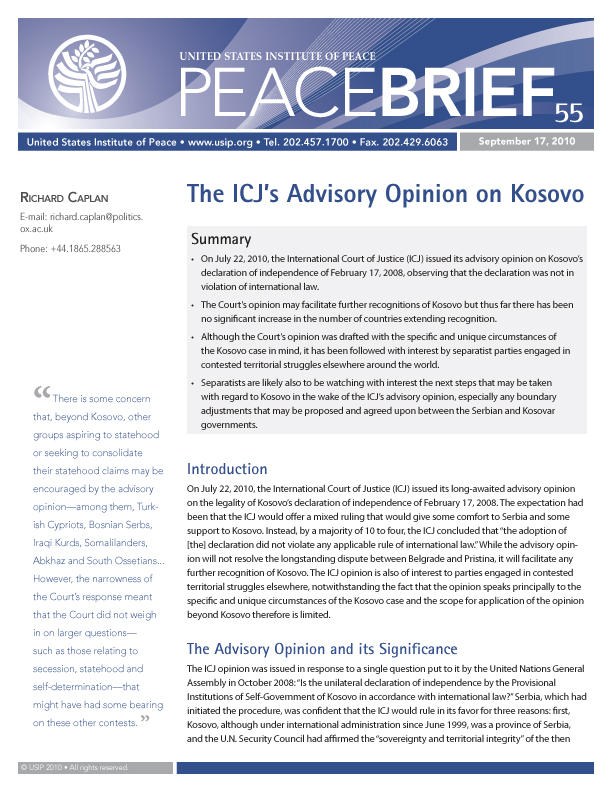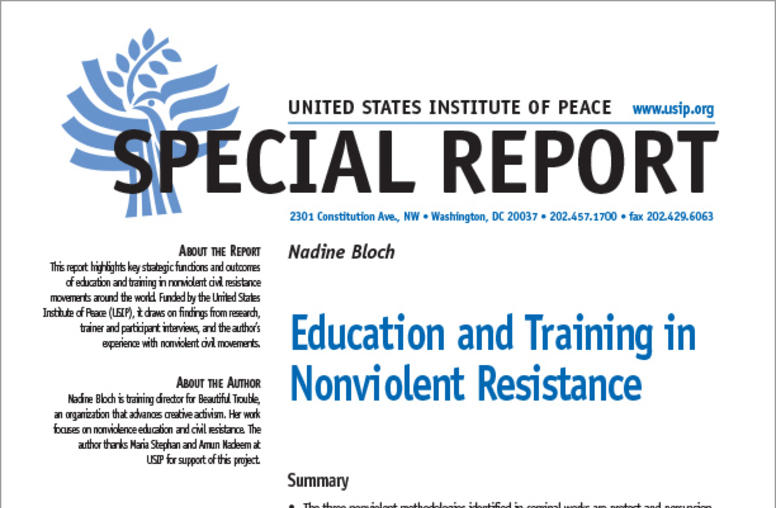The ICJ’s Advisory Opinion on Kosovo
On July 22, 2010, the International Court of Justice (ICJ) issued its long-awaited advisory opinion on the legality of Kosovo’s declaration of independence of February 17, 2008. The expectation had been that the ICJ would offer a mixed ruling that would give some comfort to Serbia and some support to Kosovo. Instead, by a majority of 10 to four, the ICJ concluded that “the adoption of [the] declaration did not violate any applicable rule of international law.” While the advisory opinion will not resolve the longstanding dispute between Belgrade and Pristina, it will facilitate any further recognition of Kosovo.

Summary
- On July 22, 2010, the International Court of Justice (ICJ) issued its advisory opinion on Kosovo’s declaration of independence of February 17, 2008, observing that the declaration was not in violation of international law.
- The Court’s opinion may facilitate further recognitions of Kosovo but thus far there has been no significant increase in the number of countries extending recognition.
- Although the Court’s opinion was drafted with the specific and unique circumstances of the Kosovo case in mind, it has been followed with interest by separatist parties engaged in contested territorial struggles elsewhere around the world.
- Separatists are likely also to be watching with interest the next steps that may be taken with regard to Kosovo in the wake of the ICJ’s advisory opinion, especially any boundary adjustments that may be proposed and agreed upon between the Serbian and Kosovar governments.
About this Brief
Richard Caplan is professor of International Relations and director of the Centre for International Studies at Oxford University. He is the author of “Europe and the Recognition of New States in Yugoslavia,” published by Cambridge University Press.



